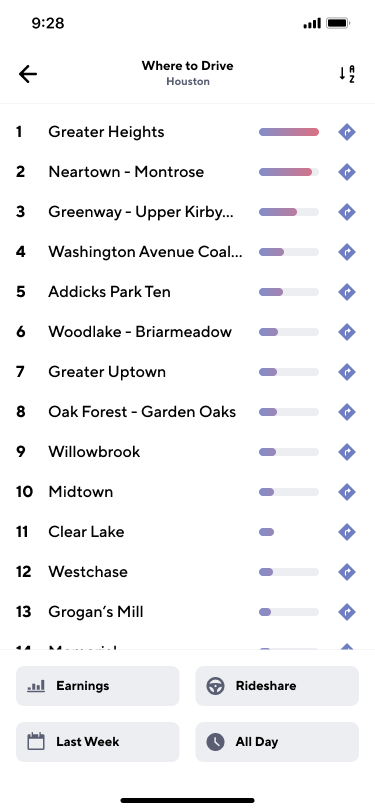
Private banking is a financial solution that provides wealthy individuals and their families with concierge-like services. It can include tiered interest rates as well special cash management and other benefits. These institutions typically target clients with liquid assets of at least $1,000,000. This has become increasingly difficult due to ever-stricter regulatory requirements.
Private banks also provide their clients with other services such as investment research and access to economists. They are also able to provide estate and tax planning services. Many private bankers work in the smaller private banking departments of large banks or for small firms. A typical client requires a wide range of financial services including complex loans and investment portfolios.
Since the 19th-century, private banks have been serving high net-worth individuals. Larger banks can reach out to clients in this category, while smaller regional banks will often find clients through word-of-mouth.
Some private bankers may work as asset managers. They manage large investment portfolios for individual investors and make reports about the performance of these investments. These firms are usually larger than boutique firms, but not as big as multi-family offices.

Private banks may offer digital platforms that allow clients to manage their accounts and compile documentation. This makes it easy to add new clients and can also save money. Digital technologies are changing the banking industry.
A private bank client with a typical net worth of at minimum $5 million USD is considered a high-networth individual. They require a variety services including trusts, business accounts, and investment portfolios. They might need these services because they may not be available at your regular bank.
Private banking can offer many benefits including personalized service, higher returns on certain loans, and special bank rewards. Some of these options do come with substantial monthly or annual fees. Private banks often have a minimum balance requirement.
Private banking can be especially useful for those with illiquid assets, such as shares in pre-IPO tech startups. Private banking may be an option for real estate magnates who want to borrow at lower interest rates. You can also use these services to get a loan for a unique piece of art.
Private bankers usually work 50 hours a week. They could earn commissions or structured salaries. Employers often look for candidates who have graduate degrees in mathematics and law. As a result, the field of private banking is more suited to those with experience in the finance industry.

Private bankers have the ability to earn thousands of dollars per year. Despite the high-pay, the field does not have a lot of exit opportunities. While some people prefer to shop around for better pricing, others like the convenience of having all of their accounts at one place.
For example, Chase Bank offers a fee-free checking account and rewards credit cards through American Express. You can also get worldwide ATM fee refunds. First Republic is also known for its excellent customer service, and offers a variety loan products.
FAQ
How much debt is considered excessive?
It's essential to keep in mind that there is such a thing as too much money. You will eventually run out money if you spend more than your income. Because savings take time to grow, it is best to limit your spending. You should cut back on spending if you feel you have run out of cash.
But how much can you afford? There isn't an exact number that applies to everyone, but the general rule is that you should aim to live within 10% of your income. You'll never go broke, even after years and years of saving.
This means that even if you make $10,000 per year, you should not spend more then $1,000 each month. You should not spend more than $2,000 a month if you have $20,000 in annual income. You shouldn't spend more that $5,000 per month if your monthly income is $50,000
Paying off your debts quickly is the key. This includes student loans and credit card bills. Once those are paid off, you'll have extra money left over to save.
It would be best if you also considered whether or not you want to invest any of your surplus income. If you choose to invest your money in bonds or stocks, you may lose it if the stock exchange falls. However, if you put your money into a savings account you can expect to see interest compound over time.
As an example, suppose you save $100 each week. It would add up towards $500 over five-years. Over six years, that would amount to $1,000. In eight years, your savings would be close to $3,000 In ten years you would have $13,000 in savings.
After fifteen years, your savings account will have $40,000 left. That's pretty impressive. If you had made the same investment in the stock markets during the same time, you would have earned interest. You'd have more than $57,000 instead of $40,000
You need to be able to manage your finances well. A poor financial management system can lead to you spending more than you intended.
Why is personal finance important?
Personal financial management is an essential skill for anyone who wants to succeed. Our world is characterized by tight budgets and difficult decisions about how to spend it.
Why then do we keep putting off saving money. What is the best thing to do with our time and energy?
Yes, and no. Yes, because most people feel guilty when they save money. It's not true, as more money means more opportunities to invest.
Spending your money wisely will be possible as long as you remain focused on the larger picture.
To become financially successful, you need to learn to control your emotions. If you are focusing on the negative aspects of your life, you will not have positive thoughts that can support you.
Your expectations regarding how much money you'll eventually accumulate may be unrealistic. This is because you haven't learned how to manage your finances properly.
These skills will allow you to move on to the next step: learning how to budget.
Budgeting is the practice of setting aside some of your monthly income for future expenses. By planning, you can avoid making unnecessary purchases and ensure that you have sufficient funds to cover your bills.
Once you have mastered the art of allocating your resources efficiently, you can look forward towards a brighter financial tomorrow.
What is personal finances?
Personal finance involves managing your money to meet your goals at work or home. This includes understanding where your money is going and knowing how much you can afford. It also involves balancing what you want against what your needs are.
If you master these skills, you can be financially independent. This means you are no longer dependent on anyone to take care of you. You don't need to worry about monthly rent and utility bills.
You can't only learn how to manage money, it will help you achieve your goals. You'll be happier all around. Feeling good about your finances will make you happier, more productive, and allow you to enjoy your life more.
Who cares about personal finances? Everyone does! Personal finance is one of the most popular topics on the Internet today. Google Trends shows that searches for "personal finances" have increased by 1,600% in the past four years.
Today, people use their smartphones to track budgets, compare prices, and build wealth. They read blogs such this one, listen to podcasts about investing, and watch YouTube videos about personal financial planning.
According to Bankrate.com Americans spend on average four hours per day watching TV, listening and playing music, browsing the Internet, reading books, and talking to friends. There are only two hours each day that can be used to do all the important things.
Personal finance is something you can master.
How to create a passive income stream
To earn consistent earnings from the same source, it is important to understand why people make purchases.
Understanding their needs and wants is key. This requires you to be able connect with people and make sales to them.
The next step is to learn how to convert leads in to sales. To retain happy customers, you need to be able to provide excellent customer service.
You may not realize this, but every product or service has a buyer. And if you know who that buyer is, you can design your entire business around serving him/her.
It takes a lot of work to become a millionaire. It takes even more work to become a billionaire. Why? Because to become a millionaire, you first have to become a thousandaire.
Then you must become a millionaire. Finally, you must become a billionaire. The same is true for becoming billionaire.
How does one become billionaire? It starts by being a millionaire. All you need to do to achieve this is to start making money.
However, before you can earn money, you need to get started. Let's take a look at how we can get started.
Which side hustles are most lucrative?
A side hustle is an industry term for any additional income streams that supplement your main source of revenue.
Side hustles provide extra income for fun activities and bills.
Side hustles can also be a great way to save money for retirement, have more time flexibility, or increase your earning potential.
There are two types. Online businesses like e-commerce, blogging, and freelance work are all passive side hustles. You can also do side hustles like tutoring and dog walking.
Side hustles that make sense and work well with your lifestyle are the best. Consider starting a business in fitness if your passion is working out. You may be interested in becoming a freelance landscaper if your passion is spending time outdoors.
Side hustles are available anywhere. Consider side hustles where you spend your time already, such as volunteering or teaching classes.
One example is to open your own graphic design studio, if graphic design experience is something you have. Perhaps you're an experienced writer so why not go ghostwriting?
You should do extensive research and planning before you begin any side hustle. You'll be ready to grab the opportunity when it presents itself.
Side hustles are not just about making money. Side hustles are about creating wealth and freedom.
With so many options to make money, there is no reason to stop starting one.
What is the distinction between passive income, and active income.
Passive income is when you make money without having to do any work. Active income requires hardwork and effort.
You create value for another person and earn active income. It is when someone buys a product or service you have created. Selling products online, writing ebooks, creating websites, and advertising your business are just a few examples.
Passive income allows you to be more productive while making money. However, most people don't like working for themselves. So they choose to invest time and energy into earning passive income.
Passive income isn't sustainable forever. If you hold off too long in generating passive income, you may run out of cash.
Also, you could burn out if passive income is not generated in a timely manner. You should start immediately. If you wait until later to start building passive income, you'll probably miss out on opportunities to maximize your earnings potential.
There are three types or passive income streams.
-
Businesses - these include owning a franchise, starting a blog, becoming a freelancer, and renting out the property such as real estate
-
Investments include stocks, bonds, mutual funds, ETFs, and ETFs.
-
Real Estate - These include buying land, flipping houses and investing in real estate.
Statistics
- While 39% of Americans say they feel anxious when making financial decisions, according to the survey, 30% feel confident and 17% excited, suggesting it is possible to feel good when navigating your finances. (nerdwallet.com)
- Mortgage rates hit 7.08%, Freddie Mac says Most Popular (marketwatch.com)
- Shares of Six Flags Entertainment Corp. dove 4.7% in premarket trading Thursday, after the theme park operator reported third-quarter profit and r... (marketwatch.com)
- According to a June 2022 NerdWallet survey conducted online by The Harris Poll. (nerdwallet.com)
- According to the company's website, people often earn $25 to $45 daily. (nerdwallet.com)
External Links
How To
You can increase cash flow by using passive income ideas
You don't have to work hard to make money online. Instead, passive income can be made from your home.
Automating your business could be a benefit to an already existing company. Automating parts of your business workflow could help you save time, increase productivity, and even make it easier to start one.
Automating your business is a great way to increase its efficiency. This means you will be able to spend more time working on growing your business rather than running it.
Outsourcing is a great way of automating tasks. Outsourcing allows for you to focus your efforts on what really matters when running your business. When you outsource a task, it is effectively delegating the responsibility to another person.
You can now focus on what is important to your business while someone else takes care of the details. Outsourcing allows you to focus on the important aspects of your business and not worry about the little things.
A side hustle is another option. Using your skills and talents to create a product or service that can be sold online is another way to generate extra cash flow.
Write articles, for example. You can publish articles on many sites. These websites offer a way to make extra money by publishing articles.
Also, you can create videos. Many platforms enable you to upload videos directly onto YouTube or Vimeo. You'll receive traffic to your website and social media pages when you post these videos.
One last way to make money is to invest in stocks and shares. Investing stocks and shares is similar investment to real estate. Instead of receiving rent, dividends are earned.
When you buy shares, they are given to you as part of your dividend. The amount of your dividend will depend on how much stock is purchased.
You can reinvest your profits in buying more shares if you decide to sell your shares. This way you'll continue to be paid dividends.